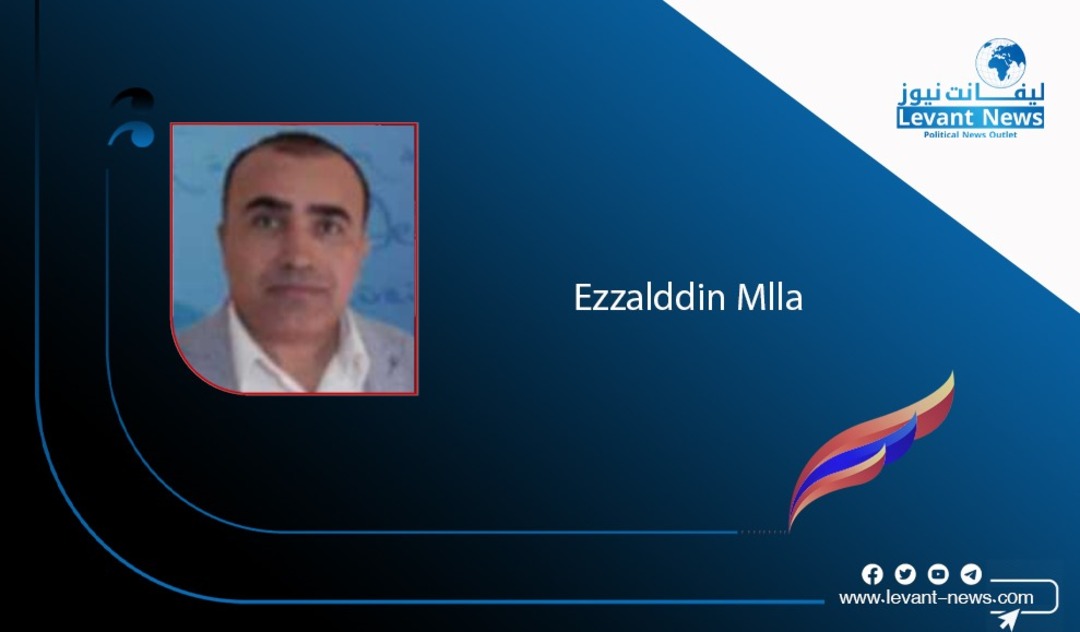-
The New Possible Syria

Today, Syria is living a pivotal moment in its history, reflecting its deep wounds amid echoes of its painful past and the challenges of an uncertain future. A homeland emerging from the darkness of tyranny, burdened with destruction and ruin, yet still holding onto the dream of revival. The fall of the regime was merely the starting point of a difficult journey to reclaim true identity and build a state that redefines itself after years of repression and monopoly.
Today, Syria is more than just a worn-out geographical entity; it is a human entity seeking a new sense of belonging, a homeland managed away from fears of despotism, and a society that transcends hatred and conflict. In this central national landscape, the Kurds appear as an inseparable part of this complex reality, bearing shared suffering with all Syrians, yet deeper and more painful because it touches their existence, identity, and memory. Now, with a new chapter opening in the nation’s history, opportunities arise for the Kurds, like all Syrians, to transform pain into awareness, tragedy into a building project, and isolation into genuine partnership in a new homeland emerging, painfully, from the ruins of the past.
Turning years of marginalization and repression into a potent political and social force is not merely a theoretical idea but a mature political action that requires a deep awareness of the mechanisms of historic change. As much as victimization may be true, it does not build a national project unless it is transformed into a conceptual and political vision based on participation, not isolation. The Kurds, who for decades remained on the margins of the Syrian state, deprived of citizenship and persecuted culturally and politically, now possess a political consciousness that qualifies them to be active partners in shaping Syria’s future.
This historic opportunity will not come often. Therefore, Kurdish forces must transcend divisions and narrow partisan rivalries. True strength lies not in loud voices but in the ability to turn memory into a mature political experience, pain into constructive energy, and the past into lessons of wisdom rather than revenge.
Consequently, fair and active Kurdish participation in the institutions of the new Syria is a vital test of the seriousness of the long-awaited democratic transformation. Partnership is not achieved through symbolic representation or superficial positions but through real integration of Kurds in state institutions— in administration, politics, the military, education, culture, and media. This participation must be based on competency and rights, not on appeasement or quotas.
Including Kurds in drafting the new constitution, for instance, is not merely about recognizing their rights; it is a guarantee of stability for all of Syria. A just constitution views pluralism as a strength rather than a threat and protects each component’s identity and rights within a comprehensive citizenship framework. Official recognition of the Kurdish language as a national language alongside Arabic would be a vital symbolic and moral step in building trust, just as Kurdish participation in the central government and local administrations would ensure the exclusionary history they endured is not repeated. A state that embraces everyone is the only one that endures; any state that excludes a component writes its own demise.
Yet, building trust among Syria’s communities is no less challenging than building the state itself. Years of accumulated fear and bloodshed during the war have deepened distrust among Syrian communities. The first step toward rebuilding trust is honest reconciliation—not through slogans but through mutual acknowledgment of responsibilities and mistakes. Arabs must hear the Kurdish voice speaking about their oppression, and Kurds must hear the Arab voice speaking about their wounds too. All Syrians were victims of a single regime, albeit to different degrees. This mutual understanding is what paves the way to genuine reconciliation— not based on denying the past but transcending it with an ethical and human perspective. Syrian society needs a new social contract—not just based on law but on trust.
What Syria truly needs before anything else is a redefinition of the idea of the state itself: a state as a home for everyone, not a tool of domination. The state is not an instrument of oppression but a means of service; it belongs not to the ruler but to the people.
The new Syrian state must be founded on the principle of a free social contract, making authority a servant of society, not its master. This will only be realized through a modern constitution enshrining the separation of powers, freedom of media, judicial independence, and equality before the law. It is impossible to build a democratic homeland without a real institutional state, and without citizens who feel that the law protects them, not threatens them. When Kurdish, Arab, and Christian citizens feel that the law is the same for everyone, and justice does not discriminate, then trust begins to return, and the shape of the new Syria starts to emerge.
Building this state cannot be achieved without restoring the collective Syrian consciousness, shattered by long fears and prolonged war. The problem has never been diversity among Syrians but how this diversity was used to divide them. Today, what is needed is a new national awareness—one that transcends dominance towards partnership, suspicion towards trust. An awareness.
By Ezz El-Din Malla
You May Also Like
Popular Posts
Caricature
opinion
Report
ads
Newsletter
Subscribe to our mailing list to get the new updates!




















